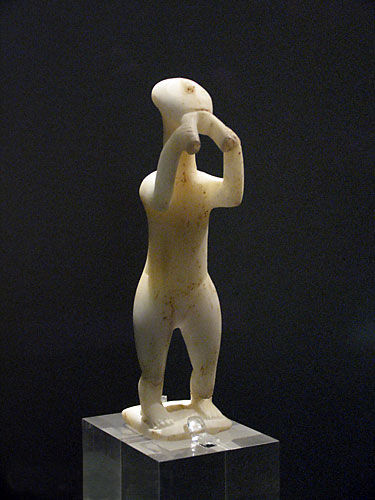As far as i know most scholars argue that the Homeric epics were not formed any later than the 9th century BC. Most of the historians of the classical era and later, have as their earliest allusions the events of the end of the archaic period, such as the first naval battle between Greek powers (Corinth and Kerkyra) or the founding of the first Greek colony in the mainland of Italy, the city of Kyme (Cumae).
While both the dramas, and the theogonic myths (such as those by Hesiod) refer to vastly older periods, even before the great flood of Deukalion, i think that the historians only go back to the edge of the archaic era, when the Mycenean hegemony had declined, leading to individual cities forming their own sphere of influence. Of course the mythical circles of those cities also refer to previous periods (such as the Attic mythic circle, with Theseus and Minoan control of Athens, or the Theban circle and old wars with the Peloponnese), along with panhellenic myths as those centered on Heracles.
I would like to ask if anyone knows of studies on whether the Trojan war (assuming it did happen as a war) took place long before the ninth or tenth century BC. If i recall correctly the rise of Mycenae happened circa 1500 BC, with the concurrent decline of Minoan Crete and its colonies, and before that the Cycladic civilization had faded away, possibly reaching its apogee around 2000 BC (according to the cycladic art which is dated from that period).

While both the dramas, and the theogonic myths (such as those by Hesiod) refer to vastly older periods, even before the great flood of Deukalion, i think that the historians only go back to the edge of the archaic era, when the Mycenean hegemony had declined, leading to individual cities forming their own sphere of influence. Of course the mythical circles of those cities also refer to previous periods (such as the Attic mythic circle, with Theseus and Minoan control of Athens, or the Theban circle and old wars with the Peloponnese), along with panhellenic myths as those centered on Heracles.
I would like to ask if anyone knows of studies on whether the Trojan war (assuming it did happen as a war) took place long before the ninth or tenth century BC. If i recall correctly the rise of Mycenae happened circa 1500 BC, with the concurrent decline of Minoan Crete and its colonies, and before that the Cycladic civilization had faded away, possibly reaching its apogee around 2000 BC (according to the cycladic art which is dated from that period).




